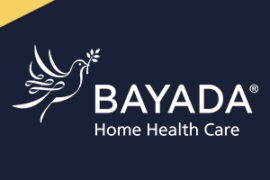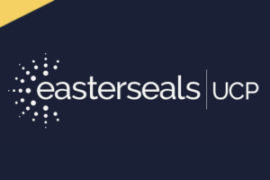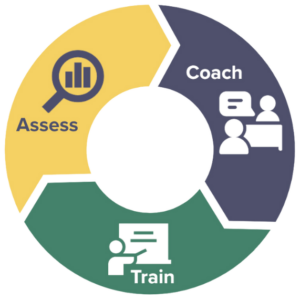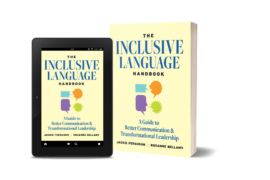This article was originally published by The National Diversity Council on Nov 15, 2019.
Diversity and inclusion has been a strategic initiative for some time. Organizations are finally understanding, measuring and benchmarking the positive impacts to recruiting and retention and to the bottom line of their business. However, only recently has neurodiversity come to the forefront and been realized as thinking styles that foster innovation, problem solving and creativity in business rather than being regarded as a disadvantage. Dyslexia is a common form of neurodivergence. This neurological difference has nothing to do with intelligence; it simply describes a different kind of cognitive processing. People with dyslexia possess many strengths due to the unique way in which their brains process stimuli, including language. Many individuals with dyslexia are right-brain dominant and are often holistic thinkers rather than linear thinkers.
Though not commonly shared, people with dyslexia have included Albert Einstein, JFK, Stephen Spielberg, John Lennon, Walt Disney and Stephen Hawking. Richard Branson recently discussed his own dyslexia as influencing his unlikely path to success. A school dropout at the age of 15, Branson went on to become a world-renowned entrepreneur, author and philanthropist. In his interview, “How Dyslexia Made Me,” Branson stated, “I suspect I would have ended up having a much more conventional life … but because I was dyslexic there was no way I thought I could do that. That turned out to be a big advantage.”
Academic studies of dyslexia in the workplace have concluded that the vast majority of adults with dyslexia choose not to disclose or ask for accommodations in the workplace. Branson, along with other celebrities, support “Made by Dyslexia,” a global charity with a mission of helping the world understand the value of dyslexia and ensure that all with dyslexia are identified and supported. Made by Dyslexia founder and chief executive Kate Griggs says, “There’s a huge advantage around dyslexic thinking that the world isn’t really aware of because it just focuses on the difficulties. However, communicating is a really strong dyslexic skill. Dyslexics have an amazing ability to take a lot of information, simplify it and communicate it.”
Dyslexia can, in fact, be a competitive advantage. Compensating skills, such as oral communication, delegation, creativity and spatial awareness, make people with dyslexia good business leaders who often start their own companies. Julie Logan, emeritus professor of entrepreneurship at Cass Business School, conducted research in the US market which showed that 35 percent of company founders identified themselves as dyslexic, compared with 15 percent in the general population.
With this alternate cognitive processing representing so much of the population, it’s fair to say that employers likely have one or more individuals with dyslexia already on their teams. Since the passing of the Equality Act of 2010, it’s been mandated that employees with dyslexia do not face discrimination and that workplaces provide reasonable accommodations to ensure an inclusive environment. These accommodations may include:
- Allowing customizable fonts and text sizes on computers to enhance readability
- Providing digital recording devices that can help with note-taking
- Ensuring that meeting documents are provided beforehand, to give time to process and prepare
The goal for leaders is to create a workplace where employees feel comfortable bringing their full selves to work. You can’t solve or support what’s hidden. Employers should consider providing confidential, optional surveys through Human Resources to better understand their employee population as a whole. It is important to remember that neurological differences drive progress in every field through creating cognitive contrasts that lead to inspired, productive work.














